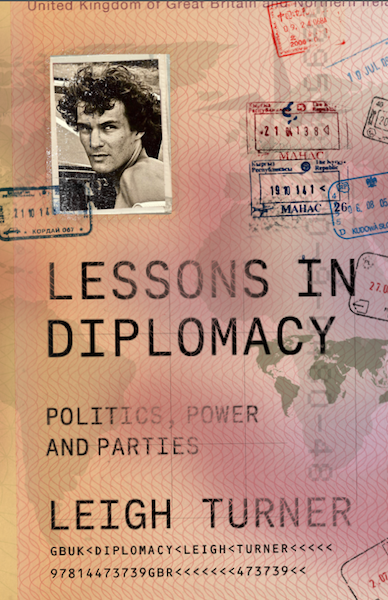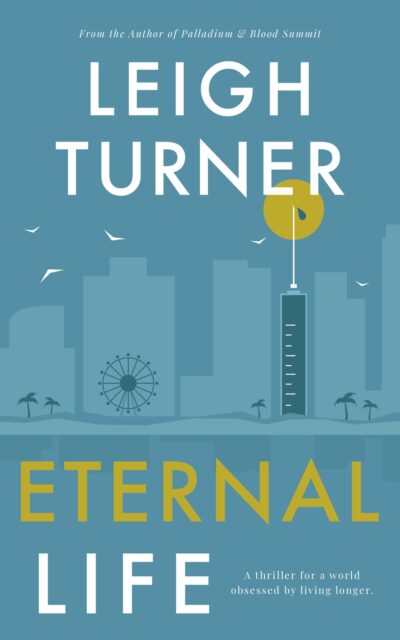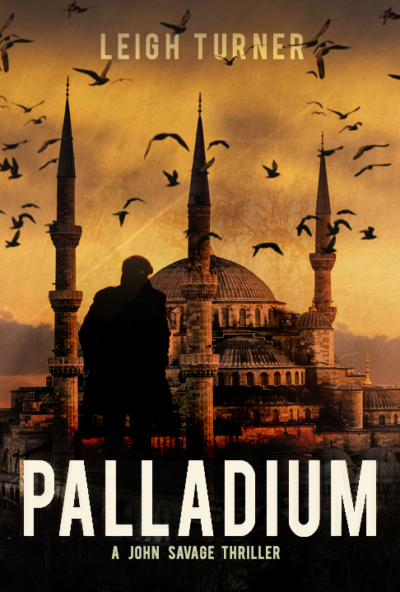This fun, accessible guide to what diplomats and ambassadors really do, and what we can all learn from diplomatic tradecraft, is available from Amazon, from bookshops such as Waterstones, or direct from Bristol University Press.
Testimonials
“An insightful and powerful book.” Jane Goodall, DBE, founder of the Jane Goodall Institute and UN Messenger of Peace.
“It’s rare that the worlds of diplomacy and rock’n’roll bump into each other but when they do, it’s reassuring to know how much we are alike. Leigh Turner rocks!” Roger Glover, Deep Purple
“Fascinating insights from a well-informed source. Informative, thought-provoking and fun.” Alexander Van der Bellen, Federal President of Austria
“This lively, readable account is a compelling case for why adventurous, creative diplomacy is needed more than ever. It will be enjoyed by practitioners, future diplomats, and anyone with an interest in how statecraft works, and the pace at which it is changing. It’s lively, often hilarious, always perceptive. Highly recommended.” Tom Fletcher, Hertford College Oxford, former foreign policy advisor and author of The Naked Diplomat
Here’s what the publisher says about Lessons in Diplomacy
Is a diplomat’s life really as glamorous as a royal visit, or as dramatic as a coup d’état in Turkey? Leigh Turner is a former British ambassador who led posts in Ukraine, Turkey and Austria. In this witty globe-trotting adventure through one of the most intriguing careers a person can have, Leigh relates his interactions with royalty of both the aristocratic and celebrity kinds, and with brilliant and extraordinary people who bestowed valuable lessons. Offering astute reflections on Brexit, Russia’s war with Ukraine and the chaos of modern politics, he sheds new light on the intricacies of modern statecraft, including what we all can learn from a good diplomat or ambassador. In this entertaining and accessible first-hand account, you’ll discover how diplomats really work with spies, how immunity allows killers to escape justice, how Russia broke up the Soviet Union and then nursed its resentment at the consequences — and how to throw, or get invited to, a great cocktail party.
Lessons in Diplomacy: more testimonials
“Amusing anecdotes from diplomatic life are always a good read, but Leigh Turner adds depth, intelligence and serious commentary. This is an insightful as well as a most readable account.” Matthew Parris, writer and broadcaster
“There are diplomats for whom the word ‘luck’ means quiet work in a calm country. Leigh Turner’s diplomatic career can be called successful from the opposite point of view. He was lucky to regularly find himself in the middle of crisis situations with poorly predictable endings. This book is not only a fascinating read, but also a valuable source for understanding the recent past in world politics.” Andrey Kurkov, Ukrainian novelist
“This brilliant book shatters any doubt about the necessity of diplomats. A must-read for anyone seeking insight into the complexities of international relations.” Maria-Pia Kothbauer, Princess of Liechtenstein, Liechtenstein Ambassador in Vienna
“It is said that diplomats think twice before saying nothing. Leigh Turner is luckily an exception: he thought twice and has written a highly entertaining guide to what diplomats really do – or what they wish they could do.” Alexander Schallenberg, Foreign Minister of Austria
“Packed with insights, wise advice and witty anecdotes from a lifetime at the sharp end of diplomacy. Leigh is a master of the trade.” Sir Laurie Bristow KCMB, University of Cambridge
“A masterclass in diplomacy for diplomats, scholars and anyone seeking to understand the forces that shape our world.” Saroja Sirisena, former Sri Lankan high commissioner to the UK
“Turner’s elegant memoir is given a sharp contemporary edge by the lessons he teases out along the way.” Dame Denise Holt DCMG, former British ambassador to Spain and Mexico
“I cannot think of a better person to report about a diplomat’s life than Leigh Turner. His residences became ‘places to be’ and his eloquent, witty and humorous descriptions of his encounters with personalities from all echelons of society provide both insight and entertainment.” Danielle Spera, Austrian journalist and former director of the Jewish Museum in Vienna
“Interested in the nuts and bolts (and steely screwdrivers and painful pliers) of diplomacy? Try Leigh Turner’s subtle, sharp exploration of the diplomatic toolbox.” Charles Crawford CMG, former HM ambassador in Sarajevo, Belgrade and Warsaw
“Entertaining, instructive and absorbing: an excellent insight into the professional and personal challenges and excitements of being a diplomat.” Stephen Wall, former ambassador to the European Union
“An engagingly self-deprecating, witty and well-written collection of diplomatic tips and tales.” Nicola Brewer DCMG, former British diplomat
“Entertaining insights into decades of diplomacy, from the 20th to the 21st centuries, in hotspots ranging from Moscow and Kyiv to Hong Kong and Shanghai.” Marc Elsberg, author of international bestselling novel Blackout
Lessons in Diplomacy: lessons for life
“Lessons in Diplomacy” tackles a series of questions that preoccupy both diplomats and everyone else. A list of chapter headings is below:

Lessons in Diplomacy: opening paragraphs
Diplomacy in flux
These, however, are parsimonious days… The telegraph has made a difference in the position of Ambassadors. When men can and do receive instructions hourly about the smallest details, and, indeed, ask for them as if anxious to escape responsibility, it is easy to conceive that the Foreign Office will not again insist on the Treasury behaving with boundless liberality.
“The Times”, reporting on the debate about rebuilding Pera House, British Embassy in Istanbul, after the fire of 1870.
Diplomacy has been in flux for centuries. Are diplomats and their tradecraft redundant in today’s world? Or are they more vital than ever for humanity’s survival?
When I started this book, the simmering Russia–Ukraine conflict, launched in 2014 by President Vladimir Putin’s invasion of Russia’s peaceful neighbour, had already claimed 14,000 lives. Yet it seemed remote and obscure to many in Britain, the European Union, and the United States. Putin’s decision in February 2022 to launch a full-scale war of annihilation against a sovereign country larger than France with a pre-war population of over 40 million transformed the world and upended diplomacy.
With Foreign Secretary Boris Johnson in Vienna, 2016
This book explores the background to the conflict: what the world did wrong, what it did right and what Vladimir Putin does not understand. It puts 21st-century diplomacy in context by digging into the Berlin Wall, the rusting of the Iron Curtain, terrorism, espionage, and how British politics prepared for Brexit – from 1987 onwards.
How, where and why does diplomacy happen, and what can it teach the rest of us? What can Jonathan the tortoise on St Helena tell us about institutional stability? Why is diplomatic immunity a necessary evil? I explain why you can’t cure international terrorism and what to do if you find broken glass in your fruit salad at a banquet at the Argentine Foreign Ministry. On the way, we meet extraordinary people, from Queen Elizabeth, Vivienne Westwood and Jane Goodall through Paul McCartney and the wisdom of Deep Purple to US former C-17 pilot Brigadier General Lyn D. Sherlock – and Satan, whom I met one night in Russia. More on him later.
1993: my Russian driving licence. Soviet photographers tended to make subjects look… a bit Soviet
1986: photobombing The Princess of Wales. Spot the diplomat
2010: the Ukrainian Strategic Missile Forces Museum
Other things to read
You can find summaries of my other published books at the foot of the page.










